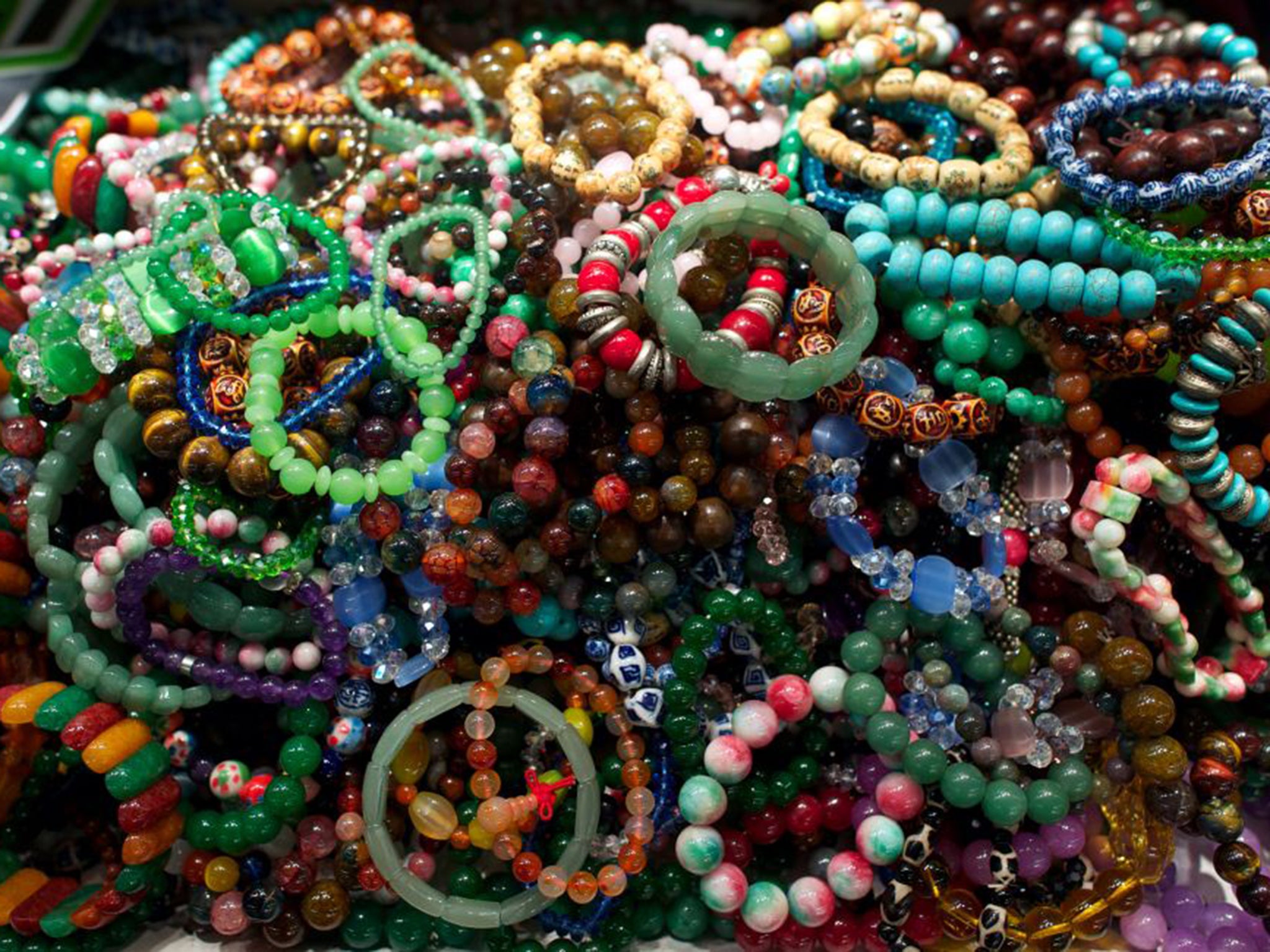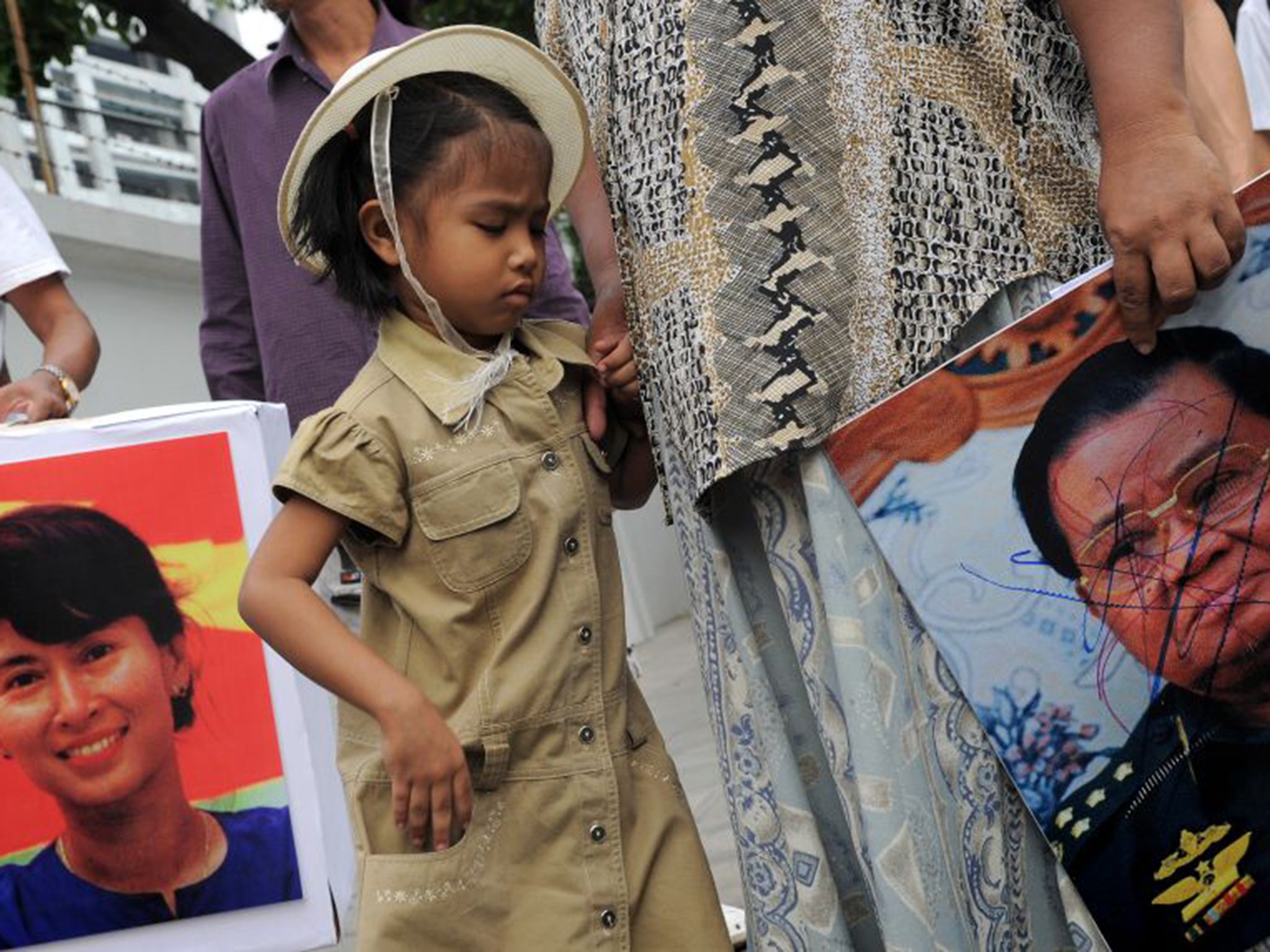Burma jade trade: Former junta members making huge profits while locals suffer environmental effects
A damning new report has labelled the £20bn business 'the biggest natural resource heist in modern history' and has warned next month's general election could be unfairly swayed by a jade 'slush' fund unless international action is taken

Your support helps us to tell the story
From reproductive rights to climate change to Big Tech, The Independent is on the ground when the story is developing. Whether it's investigating the financials of Elon Musk's pro-Trump PAC or producing our latest documentary, 'The A Word', which shines a light on the American women fighting for reproductive rights, we know how important it is to parse out the facts from the messaging.
At such a critical moment in US history, we need reporters on the ground. Your donation allows us to keep sending journalists to speak to both sides of the story.
The Independent is trusted by Americans across the entire political spectrum. And unlike many other quality news outlets, we choose not to lock Americans out of our reporting and analysis with paywalls. We believe quality journalism should be available to everyone, paid for by those who can afford it.
Your support makes all the difference.A damning new report into the jade trade warns the precious stones are bringing misery and death to the people of Burma where it is mined.
The multibillion-dollar industry is dominated by firms controlled by key members of the discredited junta which ran Burma, the country’s powerful military and drug lords, according to an investigation by the campaign group Global Witness. It claims Burma’s jade business “may be the biggest natural resource heist in modern history”.
It warns that unless international donors apply pressure for greater transparency, next month’s general election could be unfairly swayed by a jade “slush” fund. The trade is flourishing, the report says, with jade prices achieving £8,400 a kilo, buoyed largely by seemingly insatiable demand from Chinese consumers who value it above gold as a status symbol.
Such is the demand, a 27-piece jade necklace was sold for a record £17.7m in Hong Kong last year.
It estimates the value of Burma’s trade in 2014 was £20bn. The new figure, the report says, equates to nearly half of the country’s GDP. The report warns the mine licensing system is open to corruption and cronyism. As a result jade mining is dominated by a “who’s who from the darkest days of junta rule”, it says.
It names the former dictator Than Shwe – whose regime was criticised for violence and human rights abuses before he stood down in 2011 for his hand-picked successor Thein Sein – as a key player in the business, with companies known to be part of his family group posting sales of £140m in 2013 and 2014. Than Shwe is on a US blacklist of former generals and businessmen, with whom US companies are banned from trading.
Other senior figures allegedly benefiting from the trade include Ohn Myint, Burma’s Agricultural Minister, who was the former military commander in Kachin state where most of the stones are mined. The wanted drug lord Wei Hsueh-kang, who has a $2m (£1.3m) US government bounty on his head, is also a dominant player, with companies linked to him recording pre-tax sales of £64m of the gemstones.
“This massive, dirty business is still controlled by a rogues’ gallery of former generals, drug barons and men with guns. Hidden behind obscure companies and proxy owners, these elites cream off vast profits while local people suffer terrible abuses and see their natural inheritance ripped out from beneath their feet,” according to the Global Witness analyst Juman Kubba.
“Since 2011, a rebranded government has told the world it is turning the page on the ruthless military rule, cronyism and human rights abuses of the past. But jade – the country’s most valuable resource and a gemstone synonymous with glitz and glamour – reveals a very different reality,” he said.
Companies directly controlled by the military itself also profit from the trade to the tune of $280m, the report says. It warns jade revenues are widely believed to help underwrite the fighting between the Burmese army’s war and Kachin state separatist groups. The conflict, which reignited in 2011, has claimed thousands of lives already and displaced as many as 100,000 people internally.
Both the Kachin conflict and jade are difficult issues. Neither can be dodged or deferred
Jade mining is “inextricably linked to the Kachin conflict” the report warns. “Watching licensed companies controlled by their worst enemies gobble up their natural inheritance is a source of simmering resentment amongst the Kachin people. As some put it ‘the tree is in our garden, but we are not allowed to eat the fruit’,” the report states. Any peace deal which fails to address the benefits from the trade means it is “unlikely to be a lasting one,” it concludes.

The lack of effective regulation has also caused widespread environmental devastation. Last year, in an open letter to Burmese Prime Minister Thein Sein, people from the key mining town of Hpakant called for an end to abuses by mining companies. The letter claimed the dynamiting of hills and mountains “poses a serious potential health hazard to residents and causes a wide range of diseases and fatalities”. “Heavy rains cause reservoirs to burst, and reservoirs are also sometimes destroyed intentionally, leading to the death of cattle and loss of property. However the companies never take responsibility for such incidents,” the letter said.
Burma’s donors have gradually lifted sanctions as a way of encouraging political and economic reforms since the military government that ran the country stepped down. However the report urges that countries consider carefully before lifting further restrictions. Last year Burma agreed to take part in the Extractive Industries Transparency Initiative (EITI), an international scheme to stop corruption in the oil, gas and mining industries. The report says the US and other donors should use their influence to increase transparency in the jade business.
“Both the peace process and the EITI are magnets for Western donor funding. This brings with it excellent opportunities for donors to push for substantive change, but also risks them ducking difficult issues that get in the way of the positive narrative of Myanmar’s [Burma’s] transition that some Western capitals want to broadcast. Both the Kachin conflict and jade are difficult issues. Neither can be dodged or deferred,” the report warns. A spokesman for the Burmese embassy in London was unavailable for comment.
Join our commenting forum
Join thought-provoking conversations, follow other Independent readers and see their replies
Comments